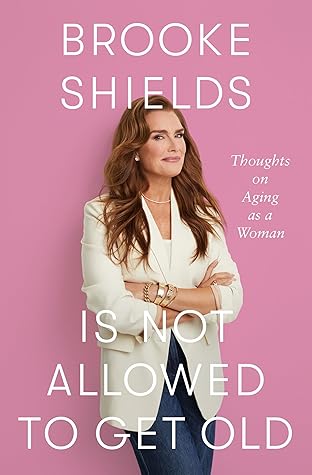More on this book
Community
Kindle Notes & Highlights
Read between
May 10 - May 10, 2025
“invisible woman syndrome.” The gist? When we are no longer deemed sexy or able to contribute to society by birthing and raising young children, our value diminishes. We are overlooked, ignored, or worse, not seen at all.
We are, it turns out, more than just a demographic obsessed with looking younger. We embody vitality. We are smart and vibrant and powerful and ambitious. We are experienced, confident, capable, and complicated. We are running shit.
You survived, and it should be celebrated, and yet there’s a sense that you’re not as valuable or exceptional as you once were, and therefore you’re letting people down.
If there is something you want to change, now’s the time to change it. If there’s something you want to stop, now’s the time to stop it. If there’s something you want to do, now’s the time to do it.
The world ignores middle-aged women at its peril.”
Research suggests, for example, the middle-aged mind is calmer, less neurotic, and better able to sort through social situations. Some middle-agers even have improved cognitive abilities.”
“confidence is the stuff that turns thought into action.” It’s when your perception of your ability is aligned with your actual ability, so that you’re willing to try new or scary things because you know you can handle them.
But as you enter your forties and fifties, and your life is more settled, the active search for meaning fades away while the perception that your life already is meaningful increases. At age sixty, the researchers said, “presence of meaning” peaks. In other words, at sixty years old—and in the immediate lead-up to it—we are more likely to feel our lives are meaningful just the way they are. Is there anything more hopeful?
A 2021 study published in the Journal of Pain found that when both genders express the same amount of pain (via their facial expressions), women’s discomfort is considered less intense.2 “If the stereotype is to think women are more expressive than men, perhaps ‘overly’ expressive, then the tendency will be to discount women’s pain behaviors,” coauthor Elizabeth Losin said in the study’s press release.
As we mature, we can reflect and marvel at what our bodies have done for us, and that takes some of the onus off appearance as the thing that matters most.
In the 2017 anthology Double Bind: Women on Ambition, playwright Sarah Ruhl has an essay, “Letter to My Mother and Daughters on Ambition.” In it, she writes to her mother: “I want, before you die, for you to feel at rest, to feel you’ve accomplished enough. To look around at this earth and say: It was good. And I wonder if that counts as mission or ambition.… Or does ambition only count as checking things off your own list and moving ever forward?”


